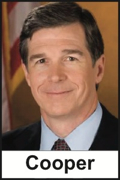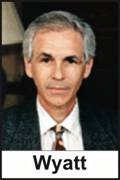Rascals case in brief
In the beginning, in 1989, more than 90 children at the Little Rascals Day Care Center in Edenton, North Carolina, accused a total of 20 adults with 429 instances of sexual abuse over a three-year period. It may have all begun with one parent’s complaint about punishment given her child.
Among the alleged perpetrators: the sheriff and mayor. But prosecutors would charge only Robin Byrum, Darlene Harris, Elizabeth “Betsy” Kelly, Robert “Bob” Kelly, Willard Scott Privott, Shelley Stone and Dawn Wilson – the Edenton 7.
Along with sodomy and beatings, allegations included a baby killed with a handgun, a child being hung upside down from a tree and being set on fire and countless other fantastic incidents involving spaceships, hot air balloons, pirate ships and trained sharks.
By the time prosecutors dropped the last charges in 1997, Little Rascals had become North Carolina’s longest and most costly criminal trial. Prosecutors kept defendants jailed in hopes at least one would turn against their supposed co-conspirators. Remarkably, none did. Another shameful record: Five defendants had to wait longer to face their accusers in court than anyone else in North Carolina history.
Between 1991 and 1997, Ofra Bikel produced three extraordinary episodes on the Little Rascals case for the PBS series “Frontline.” Although “Innocence Lost” did not deter prosecutors, it exposed their tactics and fostered nationwide skepticism and dismay.
With each passing year, the absurdity of the Little Rascals charges has become more obvious. But no admission of error has ever come from prosecutors, police, interviewers or parents. This site is devoted to the issues raised by this case.
On Facebook
Click for earlier Facebook posts archived on this site
Click to go to
Today’s random selection from the Little Rascals Day Care archives….
Click for earlier Facebook posts archived on this site
Click to go to
Today’s random selection from the Little Rascals Day Care archives….
‘A state lost the ability to see clearly’ – again
 Dec. 31, 2012
Dec. 31, 2012
Anticipating Attorney General Roy Cooper’s 2007 statement dismissing charges against the lacrosse defendants, Duke law professor Paul Haagen said,
“The critical thing could be the wording. It could simply say the state can no longer prove its case, which would be a very harmful outcome for the community, (or it) could provide a full accounting of why the case should never have been brought.”
As it turned out, Cooper – elbowed along by the Duke students’ phalanx of top-shelf lawyers – chose the road less traveled by prosecutorial bitter-enders such as H. P. Williams, Nancy Lamb and Bill Hart:
“In the rush to condemn, a community and a state lost the ability to see clearly…. I think a lot of people owe a lot of apologies to a lot of people.”
Cooper’s words were appropriate to end the case of the lacrosse defendants – and they would be just as appropriate to end the case of the Edenton Seven.
Prosecutors Book Club, please take note
April 19, 2014
“Is it possible to so modify child forensic interviewing that the sorts of errors described by Ceci and Bruck are minimized?…
“The primary problem is that most prosecutors and most so-called mental health professionals do not stay current….
“How likely, for instance, is it that a copy of ‘Jeopardy in the Courtroom’ will be found on your favorite prosecutor’s desk?”
– From “A Review of a Review of ‘Jeopardy in the Courtroom’ by Stephen J. Ceci and Maggie Bruck” at falseallegations.com
Lamb ‘continues to hold herself out as an expert’
 April 23, 2012
April 23, 2012
In 2007, W. Joseph Wyatt, writing in the professional journal The Behavior Analyst Today, looked back at the Little Rascals case:
“Prosecutors appeared to have little appreciation for the possibility, or likelihood, that they were pursuing innocent people. Prosecutorial fervor for the case evidently persisted long after it had become clear that the case had taken a series of wrong turns.
“Despite the disastrous results, one of the prosecutors continues to hold herself out as an expert. As recently as November, 2006, Nancy Lamb, still working as an assistant district attorney, was co-presenter of a training program for professionals titled ‘The Necessary Components of a Legally Defensible Child Sex Abuse Investigation.’ ”
If for no other reason, the Little Rascals case demands continued public attention as long as Nancy Lamb remains at large, presenting her cruelty and deviousness as a model for future prosecutions.
Update: At a 2010 workshop for the North Carolina Conference of District Attorneys, “Nancy Lamb… presented on how to defend the forensic interview in the courtroom.”
How to uncover ritual abuse: a foolproof recipe
Oct. 17, 2012
“Little Rascals is a most important case, because it demonstrates how the mind set of interviewers can be transmitted to the children and persuade them to disclose events that never happened. A San Diego grand jury which investigated child abuse observed:
Of particular interest is the information received about the Little Rascals case in North Carolina. Eighty-five percent of the children received therapy with three therapists in the town; all of these children eventually reported satanic abuse. Fifteen percent of the children were treated by different therapists in a neighboring city; none of (these) children reported abuse of any kind after the same period of time in therapy.
“In effect, the Edenton (multiple victim, multiple offender) case was a real-life replication of the type of laboratory experiment that could never be done for ethical reasons:
- Select a town or city in any area of the U.S. or Canada.
- Take 90 children, and divide them into two equally sized test and control groups.
- Have the test group interrogated by therapists who believe in ritual abuse, using direct and repeated questions.
- Have the control group independently interrogated by therapists who are skeptical of ritual abuse using general questioning.
- Compare rates of disclosures of ritual abuse from the two groups. “
The probable result would be that close to 100% of the test group and about 0% of the control group would reveal ritual abuse.”
– From “Ritual abuse cases in day care centers” on ReligiousTolerance.org, (Ontario Consultants on Religious Tolerance)











0 CommentsComment on Facebook